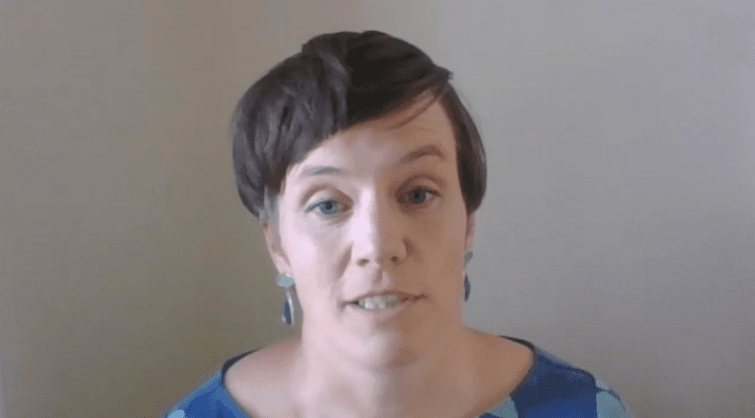Teachers were not at greater risk of admission to hospital from coronavirus compared to the general population, a study has found.
Looking at data from between March 2020 and July 2021, researchers found there was no higher risk of this among teachers than other working-age adults.
When schools were mostly closed, teachers were 50% less likely than the general working population to be admitted to hospital.
When schools were open, the risk in both groups was similar.
 STV News
STV NewsThe research was carried out jointly by Public Health Scotland and the University of Glasgow.
It noted that prompt uptake of the vaccine among teachers may have contributed to their protection from the Delta variant.
Dr Lynda Fenton, an author of the study, which was published in the BMJ, said: “Education is central to allow all children and young people to realise their potential, and teachers are a critical part of this.
“By carrying out this study, we have obtained a better understanding of the risks for teachers since the start of the pandemic.
“These findings contribute to the knowledge needed when making decisions about how to deliver education in these challenging times.
“While we were only able to look at the risk for teachers, it’s also important to consider other education staff when informing decision-making.
“That’s why Public Health Scotland are currently looking into repeating this research for Early Learning and Childcare staff and would welcome collaborations with other staff groups.”
The researchers, which looked at data from Scotland during defined periods of school closures and full openings, concluded that it was not “possible to say” why teachers are not at higher risk than the average working-age adult.
But they suggest it could be because teachers are generally healthier or more careful about Covid-19 related behaviours than other occupational groups.
Most of the teachers in the study were women (average age 42) with few underlying health conditions, researchers said.
David McAllister, professor of clinical epidemiology and medical informatics at the University of Glasgow and an author of the study, said: “Together with the finding that teachers were at lower risk of severe Covid-19, and that people who shared a household with teachers were not at increased risk, this is likely to be broadly reassuring for people involved in face-to-face teaching.
“It is important to note that during the period where the Delta variant was circulating, uptake of vaccination among teachers was high, and we would continue to encourage everyone offered a vaccine to take this up.”
The findings come as education unions have warned that a relaxation of Covid-19 safety measures this term could lead to rising infections in schools as hundreds of thousands of pupils return to classrooms across the UK.
Schools in Scotland have already returned after the summer break and the reopening is believed to have contributed to a rise in cases north of the border.
Dr Mary Bousted, joint general secretary of the National Education Union (NEU), said it was “very reassuring” that teachers have been found not to be at greater risk of hospitalisation because of Covid-19.
But she said: “Nothing in this study, however, negates the importance of vigilance in suppressing Covid transmission in schools.”
Dr Bousted added: “A spike in Covid infection in school-age children will lead to more children and staff missing school and run huge risks of viral transmission into the community where many adults do not share teachers’ general youth or good health.
“We do remain concerned about our more vulnerable members, for example those who are registered as clinically extremely vulnerable or third-trimester pregnant women. We must ensure greater protection for the many thousands in these categories.”
Geoff Barton, general secretary of the Association of School and College Leaders (ASCL), said: “While most staff will now have received coronavirus vaccinations, it needs to be remembered that the vast majority of pupils are unvaccinated.
“The Government has decided to make the control measures in the autumn term a great deal less stringent than previously and it will now be very important that it keeps this situation under review.”
Follow STV News on WhatsApp
Scan the QR code on your mobile device for all the latest news from around the country


 iStock
iStock
























